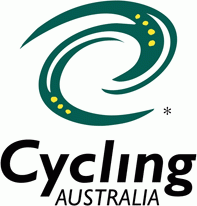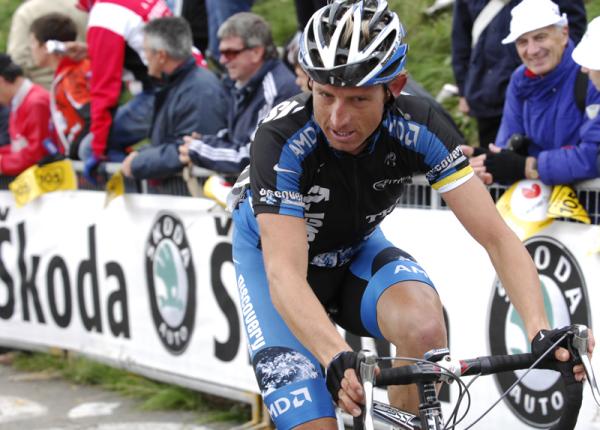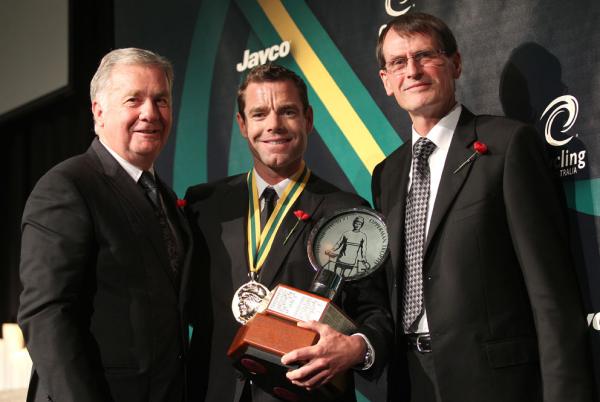Cycling Australia swallows its own bitter pill
Truth and reconciliation in the case of Matt White



"It has been a difficult week, to say the least, for those who love the sport of cycling" - And so began the Cycling Australia board's response to the fallout from the USADA Reasoned Decision documentation.
White to direct men's team for Cycling Australia
Garmin-Cervelo dismisses Matt White
Dan Martin speaks about Matt White dismissal
White's del Moral referral came down to convenience
White reconfirmed in Cycling Australia position
Will U.S. Postal history haunt Matt White?
Matt White steps down from Orica GreenEdge after doping confession
Cycling Australia board to meet after White's confession
U.S. investigations stalled ASADA's pursuit of White
Matt White sacked by Cycling Australia for anti-doping breach
Australians have a funny relationship with the truth in sport. We like to think above all else that our athletes are clean while those who are found guilty of anti-doping offences are generally ostracised and tagged as "persona non grata," regardless of their sport. Rightly so, we consider our own to be innocent until proven otherwise but elements of doubt are not easily contemplated, and it's a problem.
The reasons why likely stem from the fact that it's regularly purported that as a nation, we punch above our weight per capita on the world's sporting fields and there's a definite sense of haughtiness. That Floyd Landis' 2010 allegations against Matt White reached the mainstream media was as if the war had come to Australia.
It was evidence that Cycling Australia had previously referred to ASADA and in Wednesday's response the board was very quick reminding everyone that it "recognises its responsibility and role in the fight against doping within our sphere of influence here in Australia and among Australian cyclists."
So why was there are a need to fire back at some of the criticism Cycling Australia had faced in light of one of their own being involved in "the most sophisticated, professionalised and successful doping programme that sport has ever seen"?
This was the same governing body that made very clear that it didn't want Landis appearing at the New Pathways for Pro Cycling conference in Geelong in 2010; despite the fact the American said that he was not there to discuss the investigations into Lance Armstrong. Nor was he there "to use the conference as a 'soapbox.'" Landis had, and still has an invaluable perspective into some of the murky depths of professional cycling. Instead, Cycling Australia had its head firmly planted in the sand.
With the benefit of hindsight, Cycling Australia kowtowed on Wednesday that there was only now "damning" evidence before them. While an admission of guilt is something one can never ignore, there was an alarming need for this upper echelon of the sport in Australia to come clean about how seriously they had taken Landis' allegations in the past. Instead, we got the following sentence:
Get The Leadout Newsletter
The latest race content, interviews, features, reviews and expert buying guides, direct to your inbox!
"We have been criticised in some quarters for the decision to appoint Matt in the first place and we understand the concerns that have been raised."
Yes, you have been criticised. And rightly so.
Cycling Australia had first hired White on its staff in 2011, and then after an investigation into his subsequent dismissal from Garmin, re-confirmed his position within the high performance unit.
"As a result of this decision CA made inquiries with a number of individuals and organisations including ASADA, the UCI and senior management at Garmin Slipstream, before determining there were no grounds to prevent Matt continuing in his role with CA," explained Wednesday's statement.
It wasn't good enough. If ever there was a time to go on record with what CEO Graham Fredericks had asked in determining the report that the Cycling Australia board had charged him with the task of completing last year, it was now. If Fredericks directly asked 'did you ever dope?' White could have only given one of two answers. Instead, the situation we have now is that many of us have been left to wonder and ask Cycling Australia - how much did you know?
Cycling Australia President Klaus Mueller said over the weekend that - "We were as naive as most people involved in the sport including the journalists who had a close understanding and following of cycling. We didn't understand the extent of [doping], certainly in the U.S. Postal team that was taking place."
Mueller using the naivety card in this case is disturbing and as a lawyer frankly he should know better. As president of a sporting governing body, just as Fredericks is CEO and the board elected to their positions it is expected that they know what is going on in the sport and watch over it with a critical eye. Sitting at the very top of this organisation, they are not the average Joe who tunes in to the odd stage of the Tour de France. These are the people charged with the future direction of this sport in Australia and we're entitled to expect more from them.
It was an offensive statement because the question had been asked of Cycling Australia by journalists, myself included, but what has now been revealed is that it either didn't do its homework or it was on a road it did not want to travel down in the first place. Asking the question resulted in non-answers when it came to the gory details but we were assured that there was no reason that White should not continue in his role with Cycling Australia.
There's no doubting that White in his post-competitive roles is held with great respect by his riders and he gets results in the process. What effect his admission of his own practices while competing have on this remains to be seen but one suspects that once the initial shock of his revelations dies down and if he's allowed to carry on with his job as Orica-GreenEdge, this will continue.
In their announcement that White would not be able to continue in his role with Cycling Australia, it was an opportunity for the Board to admit some of their own misnomers. It was also a time for leadership.
"The Board has recognised the current situation calls for the review of our internal processes for the appointment of staff and contractors and while this process will begin immediately it will also be a key item to be addressed in more detail by the CA Board at its scheduled November meeting."
It was a begrudging admission that it, like the UCI, had missed the boat. But the real clanger would close out the statement that went out to its members and supporters.
"How the UCI responds to the USADA file and how it addresses the allegations within it will be critical to the reputation of the organisation and that of the sport of cycling. We at CA encourage the UCI take this very real opportunity to steer the sport into a new future."
Suddenly, Cycling Australia was throwing down the gauntlet to big brother in Aigle. It was an audacious move from a body that had let its own opportunities for change slip by. While the dismissal of White was the right thing to do, it's the way that Cycling Australia has gone about this train wreck of events that makes it so hard to applaud the outcome.
As a sports journalist and producer since 1997, Jane has covered Olympic and Commonwealth Games, rugby league, motorsport, cricket, surfing, triathlon, rugby union, and golf for print, radio, television and online. However her enduring passion has been cycling.
Jane is a former Australian Editor of Cyclingnews from 2011 to 2013 and continues to freelance within the cycling industry.